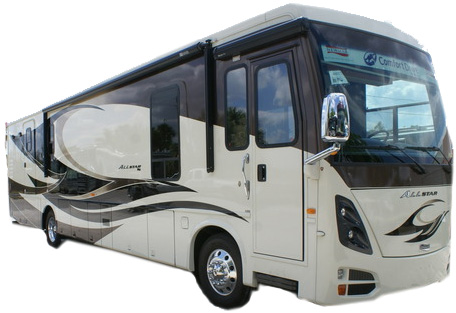
We read a lot about handicap minivans and full-size vans, but how about an accessible RV? If you travel often and find accessible hotels not so wheelchair friendly or you have a distaste of flying, an accessible motorhome could be a solution. Finances permitting, you could buy a new or used RV and have the conversion equipment you need installed.
A mobility equipment dealer can modify your new or used RV with whatever you require. The most common type of customization involves installing a wheelchair lift and widening the vehicle’s entrance and interior aisles to accommodate the wheelchair’s width.
Other common adaptations might include lowering the bed and toilet, installing hand control systems, wheelchair tie downs and handrails in strategic positions or modifying the shower and/or tub.
RVs carry their own water and waste management system. All you need is an electrical hookup at an RV campsite, state or national park or, if necessary, a generator.
Google “accessible RV parks” or “accessible RV campgrounds” for locations along your route. Access varies with each camping location, so check out the website or call beforehand. Be sure it has hard-surface cement or asphalt sites, not gravel or sand.
Think about it, you wouldn’t have to stay in a hotel or motel again, as RVs are totally self-contained living quarters on wheels. They have open floor plans with kitchens; barrier-free, roll-in showers with grab bars; extra-wide interior doors; and whatever bells and whistles you desire.
For a list of accessible RV parks in the U.S., visit HandicappedTravelClub.com.
If you don’t travel often enough to justify purchasing an RV, search for a place that rents accessible RVs. Start looking well in advance of your trip.
The National Mobility Equipment Dealers Association (NMEDA) is an advocate for mobility and accessibility for drivers with disabilities. If you need help with converting or buying a handicap accessible car, truck or van, please consider one of our mobility equipment dealers.
